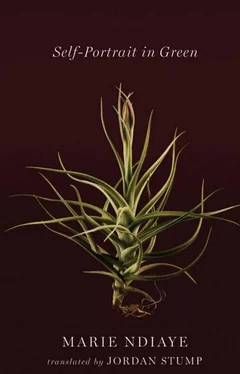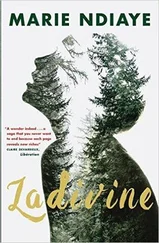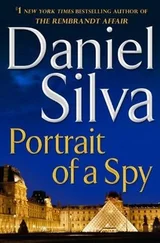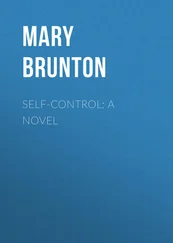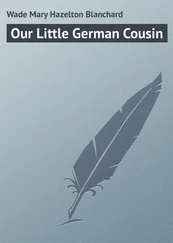Two tears rolled out from under Cristina’s (?) tinted lenses. I wasn’t sure what to say. What bond was there between us? And was she not guilty of having such children? Who was she? I really couldn’t think what to say. I was looking down at Cristina’s thick brown sandals. I took the little bits of lilac leaves from my pocket and carefully crumbled them over her feet.
“The other thing,” says Cristina, “maybe you’ve already heard. .”
No, I answer playfully, I never hear anything. And since, for anyone who knows me, that’s an obvious, barefaced lie, I tell myself that if this woman really is my friend Cristina she’ll protest, give me a little swat on the shoulder — but no, she goes on, grim-faced, standing perfectly still.
“A bunch of us saw it, in our yards, on the riverbank, in. . Apparently there were even people who saw it in the schoolyard. The mayor. . the mayor knows all about it. He saw it too. Something black, and quick. Oh, there were plenty of people who saw it.”
Cristina’s words are coming faster now. Her voice is sharper than usual. With a little hop she pulls her legs together and keeps them that way, squeezed tight. I ask:
“What is it? What did it turn out to be?”
“You haven’t seen anything?” Cristina asks.
“But what is it?”
“You haven’t seen anything?”
All at once she pulls off her sunglasses. And then it’s clear, I don’t know that face. On the opposite sidewalk a young woman waves in my direction. It’s Cristina, wearing little pink shorts.
“You haven’t seen anything?” the first woman says again, and her tone is at once urgent, suspicious, and frightened.
I resolve not to keep this conversation up one moment longer. She vigorously wriggles her right foot, without looking at it or lowering her eyes, to shake off the shredded lilac leaves. Then she shoots me a glance full of unspoken anguish, whirls around, and hurries off, raising little clouds of dust under her sandals.
I’m so rattled I hardly notice Cristina crossing the street in her tiny pink shorts, with her graceful, jaunty gait. She kissed me twice on each cheek and I inhaled her flowery scent. Cristina smelled like a spring flower, a simple white flower. What she then said I’m not sure I can believe myself. Still, I know I didn’t imagine it. She really did say it, however unlikely it seems. In a whisper, she said to me:
“A bunch of us saw it, in our yards, on the riverbank, in. . Apparently there were even people who saw it in the schoolyard. The mayor. . the mayor knows all about it. He saw it too. Something black, and quick. Oh, there were plenty of people who saw it.”
What could I have answered, if not:
“But what is it?”
Cristina shrugs, vaguely spreading her arms. Her chin tenses, quivers. Cristina is usually such an impetuous woman that at first I don’t grasp the depth of her distress.
“No one knows,” she murmurs.
Cristina is very pretty. Little girls turn and stare when she walks by. I’m proud to have such a charming, vivacious woman as my friend, a woman who can wear a pair of tiny pink shorts with credibility and good humor. I’m grateful to her, because now I recognize her so perfectly. I put one arm around her shoulder to reassure her, I’m not sure about what. Her shoulders sag. She’s completely disarmed. Seeing that, I don’t press her to tell me anything more.
“The town’s sent some workers to go search the school grounds,” Cristina continues. “I’m on my way there myself. I’m worried.”
Why so worried, I ask myself, since she doesn’t have any children? And consequently, I ask myself: did I recognize her as perfectly as I thought?
Once the schoolyard and the little adjoining woods have been fruitlessly searched, I get back in my car and head for our house, a few kilometers from town. It’s already near noon. Three hours have gone by since I set off for the school, and I never noticed. Could it be that the woman in green shorts, that stranger I took for Cristina, who must herself have confused me with someone she knew, could that woman really have kept me there talking for two full hours? It doesn’t seem likely. Also, I think about that scene she described for me, the weeping father revealing his hatred for his grandchildren, and it seems naggingly close to something I’ve heard or read before. Either someone once told me about it or it comes from a novel that woman and I both happen to have read. And then she acted it out, while I listened — and I wonder: was I acting too? And did she realize I wasn’t? But was she acting herself? There, then, are all the things I don’t know. Now I’m in a hurry to get home so I can look through my books and find the one where she might have found that story. For that matter, I could well be mistaken, and that scene is reminding me of another, almost identical, and in that case fictional, while the first is simply drawn from the false Cristina’s existence.
I know I can’t go straight home, and that makes me a little impatient, or maybe apprehensive. It’s noon, and the sun is beating down starkly on the water-willow fields. This hot day has left us all a little downhearted, I think, anticipating the summer that’s still to come, exhausted in advance.
I park in front of the house with the banana tree. The woman in green is gone now. A shiver of relief, almost triumph, quickly mutes my surprise and disappointment. I tell myself: my children had it exactly right, there never was a. .
I get out of the car all the same. I push open the gate and start down the walk. I look up toward the second-floor balcony. The sunlight is dazzling. I shade my eyes with one hand, and that’s when I see her, up on the balcony. Then she straddles the railing and throws herself off. I’m very aware of my little smile. Because I’m saying to myself: is all this really real?
A little later I’m sitting in the kitchen of that house I so often passed by, never dreaming I might one day go inside.
* * *
The woman in green fell heavily into the tall, green, unmowed grass. Oddly spry, she stood up, patted the dust from her green pants, brushed off her green tee shirt and black shoulder-length hair with one hand. I walked toward her, thinking: she could have killed herself, she could have hurt herself very badly. I was angry, sure this was all some ridiculous act. But when, one day long after, I remind her how she dropped from the second floor the moment she saw me coming into her yard, when I tell her how irritated and put out that stunt left me, she will solemnly swear that she wasn’t jumping to make an impression, that she really was hoping to do away with herself, utterly or otherwise.
She quickly rises to her feet, but now she has a limp. She tries to hide it by walking very slowly, and I conclude she’s the cavalier sort. I don’t know if I’m supposed to look grave or lighthearted. She tells me to come in for a cup of coffee, even though noon’s not ordinarily an hour for offering coffee. All around us, the countryside is perfectly silent.
“You wanted to see me?” she asks, once she’s sat down across the table, facing me.
She has very pale green eyes, like the ogress in my school when I was a child. I don’t answer her question. We hold our coffee cups with both hands in front of our mouths, and we look at each other over the rims with a hint of suspicion. Truthfulness would require that I tell her, “I had to make sure you exist.” And since I can’t tell her that, I say nothing. She introduces herself, very gracious, obliging, tells me her first name, then her family name, which I already knew. Her words hang in the air. She’s waiting for me to respond in kind, to tell her who I am. Cautiously, I say nothing. In spite of the things surrounding us in this drab kitchen, outfitted in the seventies and never refurbished since, in spite of this woman in green’s face so close I could hold out my fingers and touch it, something intangible, a veil, a glimmer of unreality makes me reluctant to tell her who I am. I don’t entirely believe in what she is. Not that I think for a moment she’s pretending — for one thing, the name she gave me as hers is the very one I’d been told — but I sense that she’s taken on the attributes of some other person, and doesn’t realize it herself. That’s not very clear. I have to explain myself more precisely. I believe that the woman in green, who told me her name was Katia Depetiteville, is not Katia Depetiteville, and I believe that if I asked people in the village for a description of Katia Depetiteville they wouldn’t describe this woman, the woman in green. They’d describe a very different person. But the woman in green doesn’t know that. She sincerely and naturally believes herself to be Katia Depetiteville. And for what reason? Is it so that, at various moments in my life, I might meet up with a woman in green? Because this is only one among many. In a plaintive, toneless voice, she tells me of the difficulties of her existence in this Aquitaine countryside, the frequent absences of a husband who is furthermore alcoholic and over-talkative, the coldness of her grown-up children, now grasping adults in their faraway towns. Her very green gaze is pale and cold. The hours go by as she speaks, giving up on hearing me say a word. The hours go by, but I don’t notice. What exactly she’s saying I’ll soon have forgotten. I’m wondering: where is the real Katia Depetiteville? When, later, in the village or waiting outside the school, I speak of the woman in green, people will answer, dumbfounded: Katia Depetiteville has been dead for ten years or more. And I won’t be surprised, having sensed it in advance.
Читать дальше
